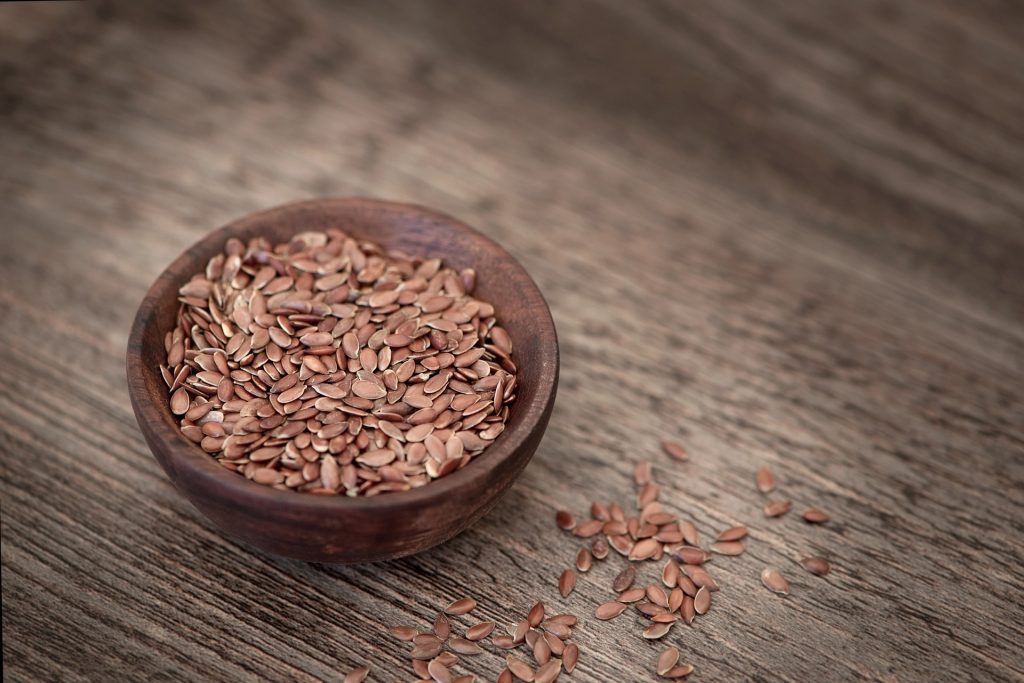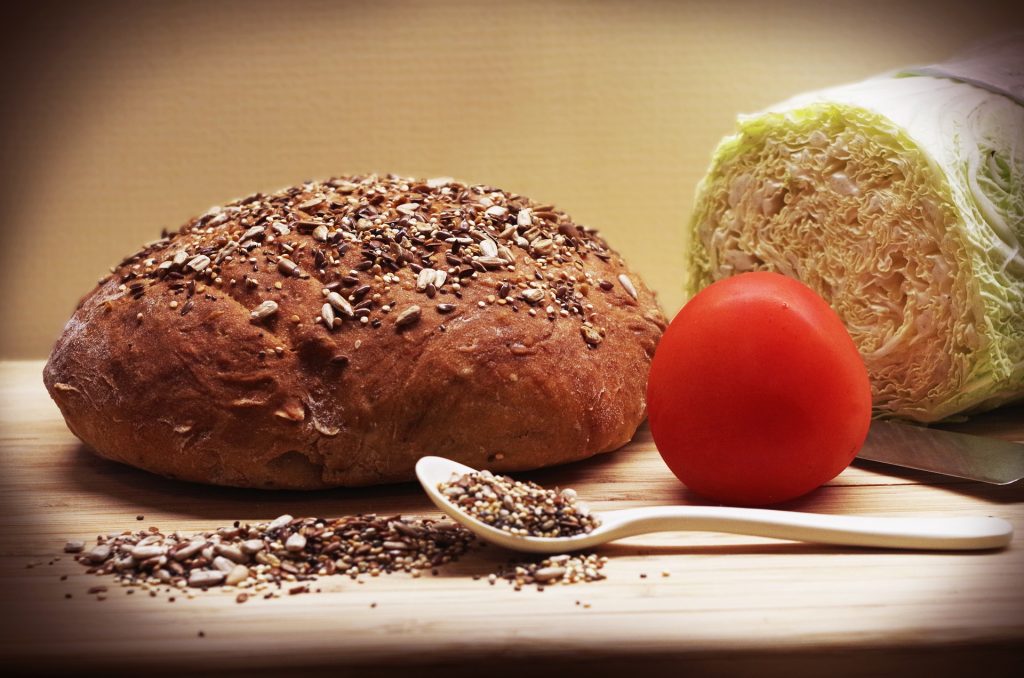Top 10 Health Benefits of Flaxseed
For centuries, flax seeds have been valued for their health benefits.
In fact, Charlemagne ordered his subjects to eat flaxseed for their health. Therefore, it is not surprising that they acquired the name Linum usitatissimum, which means "most useful".
Flaxseeds are now considered a "superfood" as more scientific research points to their health benefits.
Here are 10 health benefits of flax seeds, which are backed by science.
1. Flax seeds are loaded with nutrients
Cultivated since the dawn of civilization, flaxseed is one of the oldest crops. There are two types, brown and golden, which are equally nutritious.
A typical serving size for ground flaxseed is 1 tablespoon (7 grams).
One tablespoon of ground flaxseed contains the following (1):
Calories: 37
Protein: 1.3 grams
Carbs: 2 grams
Fiber: 1.9 grams
Total Fat: 3 grams
Saturated fat: 0.3 grams
Monounsaturated fat: 0.5 grams
Polyunsaturated fat: 2.0 grams
Omega-3 fatty acids: 1,597 mg
Vitamin B1: 8% by RDI
Vitamin B6: 2% by RDI
Folate: 2% from RDI
Calcium: 2% from RDI
Iron: 2% by RDI
Magnesium: 7% from RDI
Phosphorus: 4% from RDI
Potassium: 2% from RDI
Interestingly, the health benefits of flaxseeds are mainly due to the omega-3 fatty acids, lignans and fiber they contain.
2. Flaxseeds are high in Omega-3 fats
If you're a vegetarian or don't eat fish, flaxseeds may be your best source of omega-3 fats.
They are a rich source of alpha-linolenic acid (ALA), a predominantly plant-based omega-3 fatty acid.
ALA is one of two essential fatty acids that you must get from the food you eat because your body does not make them.
3. Flaxseeds are a rich source of lignans, which may reduce the risk of cancer
Lignans are plant compounds that have antioxidant and estrogenic properties, both of which may help reduce cancer risk and improve health.
Interestingly, flax seeds contain up to 800 times more lignans than other plant foods.
Studies show that those who eat flax seeds have a lower risk of breast cancer, especially postmenopausal women.

4. Flaxseeds are rich in dietary fiber
Just one tablespoon of flaxseed contains 3 grams of fiber, which is 8–12% of the recommended daily intake.
Moreover, flaxseed contains two types of dietary fiber – soluble (20–40%) and insoluble (60–80%).
This duo fiber is fermented by bacteria in the colon, bulking up stool and leading to more regular bowel movements.
On the one hand, soluble fiber increases the consistency of intestinal contents and slows down the rate of digestion. It has been shown to help regulate blood sugar and lower cholesterol.
On the other hand, insoluble fiber allows more water to bind to the stool, increasing its bulk and resulting in softer stools. This is useful for preventing constipation and for those who have irritable bowel syndrome or diverticular disease.

5. Flaxseeds can improve cholesterol
Another health benefit of flaxseeds is their ability to lower cholesterol levels.
In one study in people with high cholesterol, consuming 3 tablespoons (30 grams) of flaxseed per day for three months lowered total cholesterol by 17% and "bad" LDL cholesterol by nearly 20%.
Another study of people with diabetes found that taking 1 tablespoon (10 grams) of flaxseed per day for one month led to a 12% increase in "good" HDL cholesterol.
In postmenopausal women, consuming 30 grams of flaxseed daily lowered total cholesterol and LDL cholesterol by approximately 7% and 10%, respectively.
These effects appear to be due to the fiber in flaxseed, as it binds to bile salts and is then excreted by the body.
To replenish these bile salts, cholesterol is pulled from the blood into the liver. This process lowers blood cholesterol levels.
6. Flaxseeds can lower blood pressure
Research on flaxseed has also focused on its natural ability to lower blood pressure.
A Canadian study found that eating 30 grams of flaxseed daily for six months lowered systolic and diastolic blood pressure by 10 mmHg and 7 mmHg, respectively.
For those already taking blood pressure medication, flaxseed lowered blood pressure even further and reduced the number of patients with uncontrolled high blood pressure with 17%.
7. They contain high-quality protein
Flaxseeds are a great source of plant protein and interest in flax protein and its health benefits is growing. Flaxseed protein is rich in the amino acids arginine, aspartic acid and glutamic acid.
Numerous studies have shown that flaxseed protein helps improve immune function, lowers cholesterol, prevents tumors, and has antifungal properties.
If you're considering cutting back on meat and are worried you'll be too hungry, flaxseeds are your answer.
8. Flaxseeds can help control blood sugar
Type 2 diabetes is a major health problem worldwide.
It is characterized by high blood sugar levels as a result of either the body's inability to secrete insulin or resistance to it.
Several studies have found that people with type 2 diabetes who added 10–20 grams of flaxseed powder to their daily diet for at least a month saw a reduction in blood sugar levels by 8–20%.
This blood sugar-lowering effect is mostly due to the insoluble fiber content of flax seeds.
9. Flaxseeds are satiating, which can help with weight control
If you tend to overeat, you may want to consider adding flaxseeds to your diet to stave off hunger pangs.
One study found that adding 2.5 grams of ground flax fiber extract to food reduced hunger and overall appetite.
The feeling of reduced hunger is probably due to the soluble fiber content of flax seeds. It slows down digestion in the stomach, which triggers numerous hormones that control appetite and provide a feeling of satiety.
The dietary fiber content of flaxseeds may aid in weight control by suppressing hunger and increasing satiety.
10. Flaxseed can be a versatile ingredient
Flaxseeds or flaxseed oil can be added to many common foods. Try the following:
Adding them to water and drinking it as part of your daily fluid intake
Flaxseed oil as a salad dressing
Sprinkle ground flax seeds on your hot or cold cereal
Mixing them into your favorite yogurt
Adding them to cookies, muffins, bread or other dough
Blending them into smoothies to thicken the consistency
Adding them to water as an egg substitute
Including them in pies and pasta





Facebook Comments